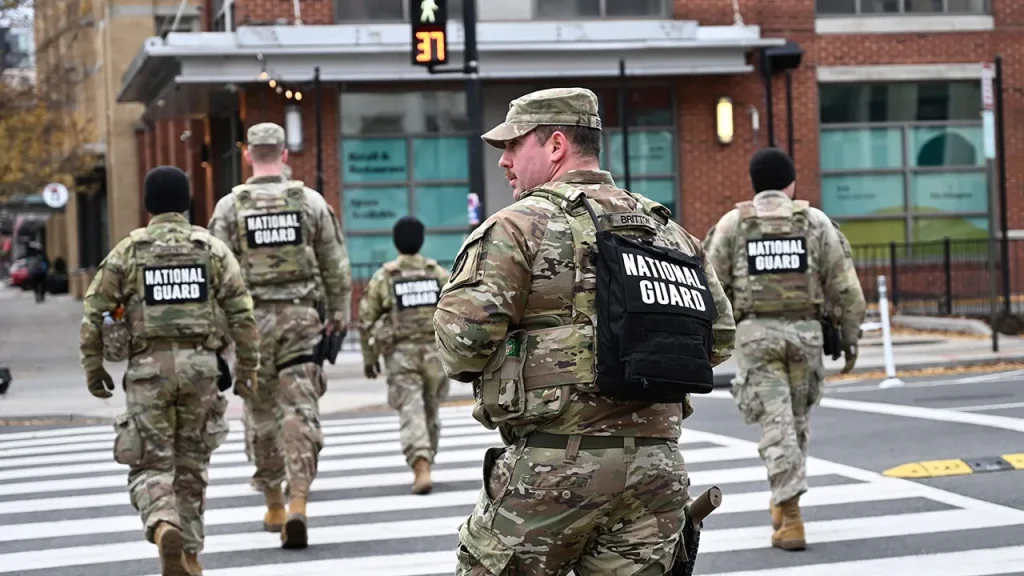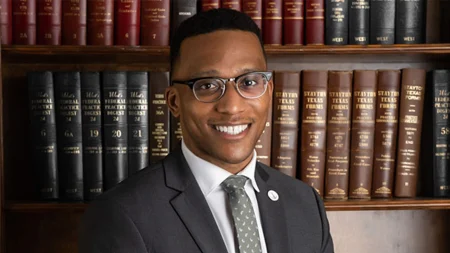National Guard Deployment in Washington D.C.: Legal Battles Intensify Following Tragic Attack
The Trump administration is locked in a contentious legal struggle with Washington D.C. over the deployment of National Guard troops in the nation’s capital. This dispute has escalated to the federal appeals court, with the Department of Justice seeking to overturn U.S. District Judge Jia Cobb’s November 20 ruling that blocked the administration from using National Guard forces in the District. The timing of this legal battle has become particularly significant following the tragic shooting of two National Guard members near the White House on Wednesday, which resulted in the death of 20-year-old Sarah Beckstrom and left 24-year-old Andrew Wolfe in critical condition. The alleged attacker, Rahmanullah Lakanwal, an Afghan national who previously worked with the CIA, faces at least one charge of first-degree murder in what President Trump has characterized as an “act of terror.”
The administration’s response to the attack has been swift and resolute, with President Trump ordering an additional 500 National Guard members to Washington D.C., declaring, “We will not be deterred from the mission the service members were so nobly fulfilling.” This deployment is part of a broader strategy to maintain National Guard presence in the capital through at least February, signaling the administration’s commitment to its immigration enforcement and crime reduction initiatives despite legal challenges. The DOJ confirmed it is pressing forward with its appeal of Judge Cobb’s order, which was originally scheduled to take effect in mid-December. A three-judge panel, consisting of two Trump appointees and one Obama appointee, is now considering the case and has requested that all parties submit their arguments by Wednesday, after which a decision on whether to block Cobb’s order could come at any time.
At the heart of this dispute are fundamental questions about federalism, sovereignty, and public safety. Washington D.C.’s legal representatives argue that the Trump administration has overstepped its authority by effectively creating a “federal military police force” comprising more than 2,000 D.C. and out-of-state National Guard members, despite opposition from local leadership. They contend that this deployment has “inflamed tensions” and diverted resources from the local police department. Of particular concern are the out-of-state National Guard forces, which the District’s lawyers argue are especially problematic given that states cannot legally interfere with the District of Columbia, which operates under a unique set of federal statutes designed to protect its limited sovereignty.
The Department of Justice has countered these arguments by asserting that the deployment is “plainly lawful” and emphasizing that the troops are not conducting arrests or searches but rather engaging in deterrence through patrols in areas that are undermanned by local police, with temporary detentions made only when necessary. “The results speak for themselves,” DOJ attorneys stated, pointing to what they describe as a successful coordination between federal agencies and the D.C. Mayor’s office to protect the public from violent crime. This position reflects the administration’s broader approach to immigration and public safety, which has included attempts to deploy National Guard members in other locations such as Illinois and Portland—efforts that have similarly met resistance from state and local leaders, resulting in additional lawsuits, including one currently pending before the Supreme Court.
The shooting incident near the White House has undoubtedly intensified the scrutiny on this legal battle and raised the stakes for both sides. The tragic attack on two young National Guard members, who had been on the job for less than 24 hours, has become a focal point in discussions about the role, necessity, and risks associated with National Guard deployments in domestic settings. President Trump’s characterization of the attack as terrorism and his immediate response to increase troop presence highlight the administration’s unwavering commitment to its security approach, even as some Democratic strategists have expressed concern that adding more National Guard troops might create “more targets” rather than enhancing safety.
As this legal and policy dispute unfolds against the backdrop of a grieving nation, the fundamental questions it raises extend beyond immediate security concerns to touch on core constitutional principles regarding the balance of power between federal and local authorities, particularly in the unique jurisdiction of Washington D.C. The appeals court’s upcoming decision will not only determine the immediate fate of National Guard deployments in the capital but may also establish important precedents for similar situations nationwide. Meanwhile, the Trump administration appears determined to maintain its security posture in Washington through the winter months, setting the stage for continued tension with local officials who question both the legality and efficacy of such deployments. The resolution of this conflict will likely have lasting implications for federal-local relations and national security policies in urban centers across America.















